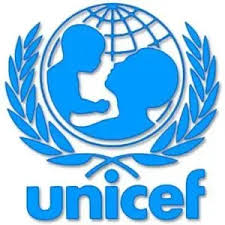Nigeria is facing a critical education crisis, the United Nations Children’s Fund (UNICEF) has said.
It said with millions of children out of school and many struggling to learn, UNICEF is urging governments and stakeholders to take immediate action
The UNICEF Chief of Field Office, Bauchi, Dr. Tushar Rane, stated this while speaking at a two-day regional stakeholder’s engagement meeting on out-of-school children and retention, transition, and completion models of Bauchi, Gombe, and Adamawa states Wednesday in Gombe.
He said the numbers paint a concerning picture as an estimated 10.2 million primary school children, with an additional 8.1 million junior secondary school students, are out of school in the country.
“Unfortunately, this positions Nigeria with the challenge of having the largest number of out-of-school children globally and only 63 percent of children of primary school age regularly attend school,” it said.
He added that according to the Multiple Indicator Cluster Survey 2021, only 84 percent of children effectively transition to junior secondary education after primary school completion and less than 50 percent—about 2.4 million—of the 5.9 million children who commence Primary Grade 1 annually in Nigeria persist to the conclusion of Junior Secondary Grade 3.
“An analysis of the MICS reports between 2011 and 2021 show an increase in dropout rates across all genders at the primary level, especially in the northern part of the country. Specifically, the primary-level dropout rate rose from 1% in 2011 to 5% in 2021.
“A similar upward trend is noticeable when considering wealth quintiles. For students belonging to the poorest wealth quintile, the primary-level dropout rate increased from 2% in 2011 to 6% in 2021. Among students in the richest wealth quintile, the dropout rate also showed an increase, rising from 1% in 2011 to 4% in 2021.
“This consistent pattern suggests that, compared to a decade ago, the education system in Nigeria faces challenges in retaining students and ensuring their continued education across all the regions.
Dr. Rane said numerous obstacles prevent consistent school attendance, timely enrollment, and the completion of education for all Nigerian children.




